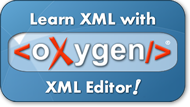The Mozilla Project


Mozilla is a framework for
building web applications.
What is Mozilla?
 |
Mozilla is not a web browser.
Mozilla is a framework for building web applications using web standards like
CSS, XML, RDF.
|
Mozilla code is used in Netscape 6 and 7, and in other web browsers
such as Firefox and Camino, chat clients, news clients, email clients, games,
and other types of web applications for Windows, Linux, and Mac.
Mozilla is an open-source web development project developing the program code
used in the Mozilla Application Suite (also known as SeaMonkey).
The Mozilla Application Suite is a complete set of
web applications (browser, email client, news client, chat client and
more).
Browsers based on Mozilla code (Mozilla, Firefox, & Camino) is the second
largest browser family on the Internet today, representing about 30% of the
Internet community. Mozilla browsers are known to have very
good web
standards support.
The Mozilla Project
The Mozilla Project was created to continue developing Netscape as an open
source project.
In November 1998 AOL (America Online) purchased Netscape.
The development of the core engine for Netscape was moved to an open source
project called "The Mozilla Project".
The project was renamed SeaMonkey after April 2006 with the Mozilla
Foundations main intention of phasing out the Mozilla suite and shifting it's
main focus to the Firefox/Thunderbird/SeaMonkey projects
The Mozilla Foundation
The Mozilla Foundation was created in July 2003 when AOL laid off the
employees involved in the Mozilla open-source browser team.
Mozilla Foundation's Roadmap
The Mozilla project decided to make a new roadmap for the development. Some
of the points in the new roadmap is listed below:
- Focus on standalone applications (the FireFox browser, the Thunderbird
mail/news application, and standalone composer)
- Make Firefox and Thunderbird the premier products of Mozilla
- Maintain the SeaMonkey (current Mozilla browser) application suite for
enterprises and organizations with large Mozilla deployments
- Maintain the Mozilla 1.4 branch as the "distributor/vendor" branch used
by organizations with year-long lead times
- Fix crucial Gecko layout architecture bugs. All Mozilla applications
benefit from such Gecko improvements
- Prefer quality over quantity. Do less, but better!
Products of Mozilla
- Mozilla - the application suite
- Firefox - a standalone browser
- Thunderbird - an email and newsgroup client
- Camino - a web browser for Mac
- Composer - a web page editor
Versions for Windows, Linux, and Mac can be downloaded from:
http://www.mozilla.org
Confusing Mozilla Names
The very first Netscape browser had a code engine called Mozilla. Netscape
1.0 was powered with a code engine called Mozilla 1.0. Netscape 2.0
used Mozilla 2.0, Netscape 3.0 used Mozilla 3.0, and Netscape 4.0 used Mozilla
4.0.
In 1998 the source code of Netscape 4 was made public - and the
development of Netscape 5 was made an open source project.
The open source project for creating Netscape 5 was called "The Mozilla
Project". Strangely enough, the code engine for the Mozilla Project was
called Gecko.
Unfortunately it took Netscape more than three and a half years after the release of 4.0, to
produce its next generation browser. This delay destroyed Netscape's possibilities to remain a credible alternative to Microsoft's
Internet Explorer. Microsoft released IE 5.0 just after the Mozilla project had
started, and was ready with IE 6.0 before Netscape managed to release a workable
browser.
Netscape 6.0 based on Gecko M18 (Milestone 18) was released in November 2000.
After the release of Netscape 6.0, the Mozilla Project started to work on
Netscape 7 based on an engine called Mozilla 1.0 !!.
Netscape 6 and 7 are built on Mozilla and Netscape and Mozilla are nearly an
identical suite of applications.
The current version of Netscape 7 claims to have a code engine called
Gecko 1.0 !!
At the moment the Mozilla Project is developing a new web browser called Firefox.
Firefox was previously called Mozilla Firebird (which was
previously called Phoenix, which claimed to be a new version of Mozilla).
Confused? I am.
The confusing name changes must have something to do with legal issues (I think).
Mozilla Releases
The Mozilla Foundation has released the following versions of Mozilla:
Mozilla 1.8 Alpha 5 November 22, 2004
Mozilla 1.8 Alpha 4 September 28, 2004
Mozilla 1.8 Alpha 3 August 18, 2004
Mozilla 1.8 Alpha 2 July 14, 2004
Mozilla 1.8 Alpha 1 May 20, 2004
Mozilla 1.7.3 September 13, 2004
Mozilla 1.7.2 August 4, 2004
Mozilla 1.7.1 July 8, 2004
Mozilla 1.7 June 17, 2004
Mozilla 1.7 RC3 June 8, 2004
Mozilla 1.7 RC2 May 17, 2004
Mozilla 1.7 RC1 April 21, 2004
Mozilla 1.7 Beta March 18, 2004
Mozilla 1.7 Alpha February 23, 2004
Mozilla 1.6 January 15, 2004
Mozilla 1.6 Beta December 9, 2003
Mozilla 1.6 Alpha October 31, 2003
Mozilla 1.5.1 November 26, 2003
Mozilla 1.5 October 15, 2003
Mozilla 1.5 RC2 September
26, 2003
Mozilla 1.5 RC1 September
17, 2003
Mozilla 1.5 Beta August 27, 2003
Mozilla 1.5 Alpha July 22, 2003
Mozilla 1.4.1 October 10, 2003
Mozilla 1.4 June 30, 2003
Source:
http://www.mozilla.org/releases/


Learn XML with <oXygen/> XML Editor - Free Trial!
 |
|
oXygen helps you learn to define,
edit, validate and transform XML documents. Supported technologies include XML Schema,
DTD, Relax NG, XSLT, XPath, XQuery, CSS.
Understand in no time how XSLT and XQuery work by using the intuitive oXygen debugger!
Do you have any XML related questions? Get free answers from the oXygen
XML forum
and from the video
demonstrations.
Download a FREE 30-day trial today!
|
|